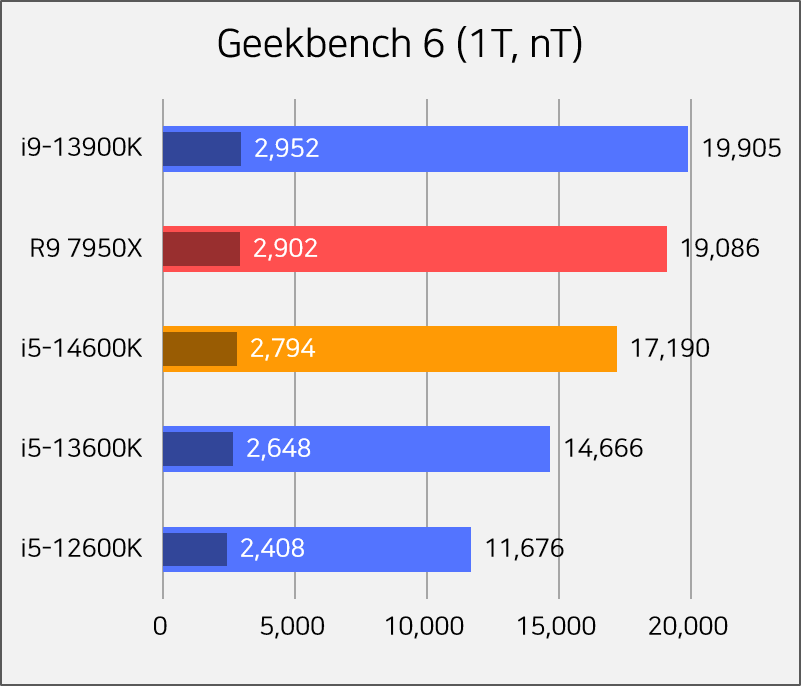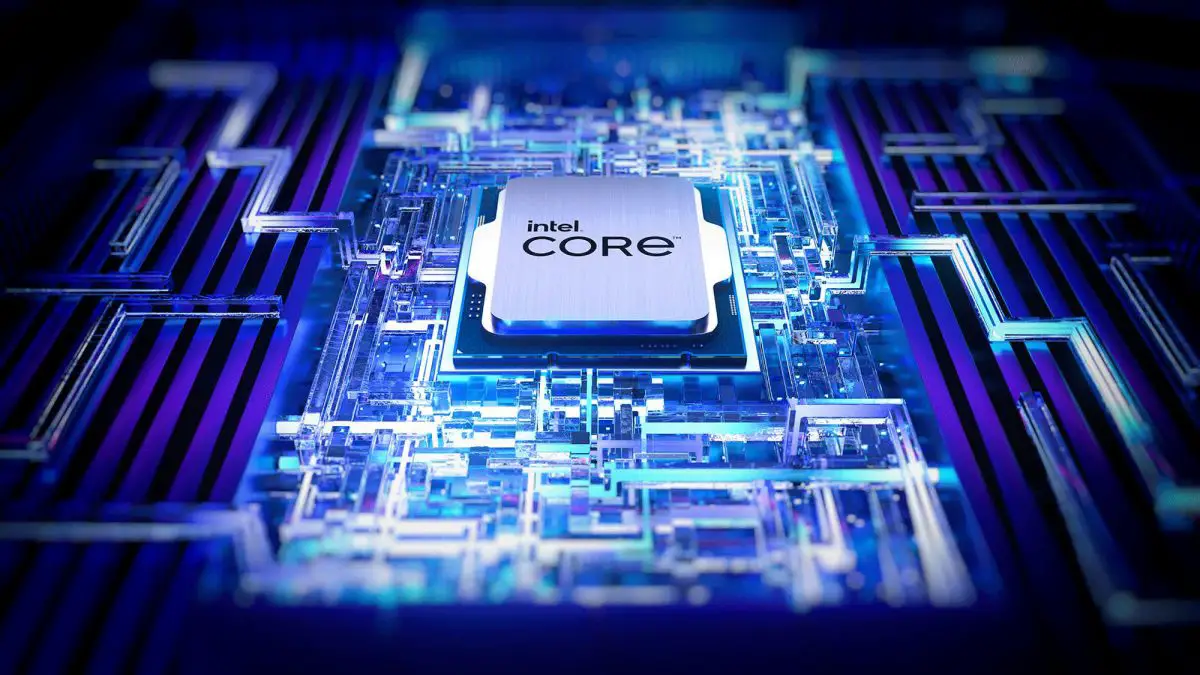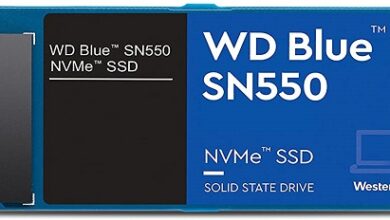The Intel Raptor Lake already has a good lead in productivity over the Ryzen 7000 CPUs when we talk about the mid-range CPUs. This is most likely because of the fact that Intel chips come with more cores particularly the Efficient cores that help distribute the tasks.
With the Raptor Lake Refresh, what else Intel could do to improve the performance significantly without having to design the die from scratch?
This is where things get interesting because, from the various specifications leaks we have seen so far, it doesn’t look like Intel is giving each and every Core processor a core count increase and all we are left with is an increased clock speed and apparently nothing else.
Intel Raptor Lake Refresh Core Count Changes
If we talk about the specifications, only the Core i7 processors are getting a core count increase and it’s the increment in the Efficient cores which will be now 12 on the Refresh compared to the 8 on the original.
Core i5s and i9s remain unchanged except for the clock speeds which are speculated to be increased by 200MHz and that’s it. But there is still hope for this series if we consider the latest performance leak of the Core i5 14600K which recently was spotted on Twitter confirming the clock speed increase and also on Geekbench which shows us its true performance.
Core i5 14600K Geekbench Performance
As spotted by Harukaze, it was the core i5 14600kF which is the CPU without any integrated graphics. It scored 2794 points in single-core and 17190 points in multi-core tests.

Now if we compare it to the scores achieved by the 13600K, the 14600K looks disappointing with only a 5.5% uplift in single-core performance. To me, this shows that the 14600K won’t be any better for gaming or some applications like Adobe Photoshop or Premiere Pro because games and these applications are mostly dependent on higher single-core power considering that the CPU is already having enough cores to support the applications.
But on the other hand, when we look at the multi-core performance, the 14600K has greatly improved with a 17% performance uplift which is not only decent for a Refresh CPU but also raises some questions. Considering that the 14600K doesn’t come with any core count increase, it is not possible to have such a big gap in multi-core performance unless all the cores run at higher clock speeds than before.
The 14600K is only 200Mhz faster than the 13600K when it comes to Max turbo frequency and therefore, I believe that unlike the latter, the 14600K should be able to boost up the clock speeds of all the cores instead of a single one.
This means that Intel must have found a way to remove this bottleneck from all the cores and now even without any core count increase, it can deliver much higher productivity.
Will Such Improvements Follow?
That said, this improvement is likely to be seen on other Refresh Core processors, especially the i7s which not only have higher clock speeds but also more efficient cores. But I don’t think the Refresh lineup will have any significant improvement in gaming which won’t attract gamers, unlike the Ryzen 3D CPUs that can do a better job while consuming far less power.
At this point in time, AMD is doing pretty well in the CPU market and even the number one seller on Amazon is the 5600X which now consistently remains at below $150. The most selling Intel CPU is the higher-end i9 13900K which is popular due to its productivity and it’s most likely that gamers are going for AMD CPUs like the 7800X3D and the 5800X3D as they are far cheaper than the 13900K and still deliver exceptional performance.
Therefore, it looks to me that gamers want more affordable mid-range options than the higher-end chips because spending a few hundred dollars more won’t affect the gaming performance.

